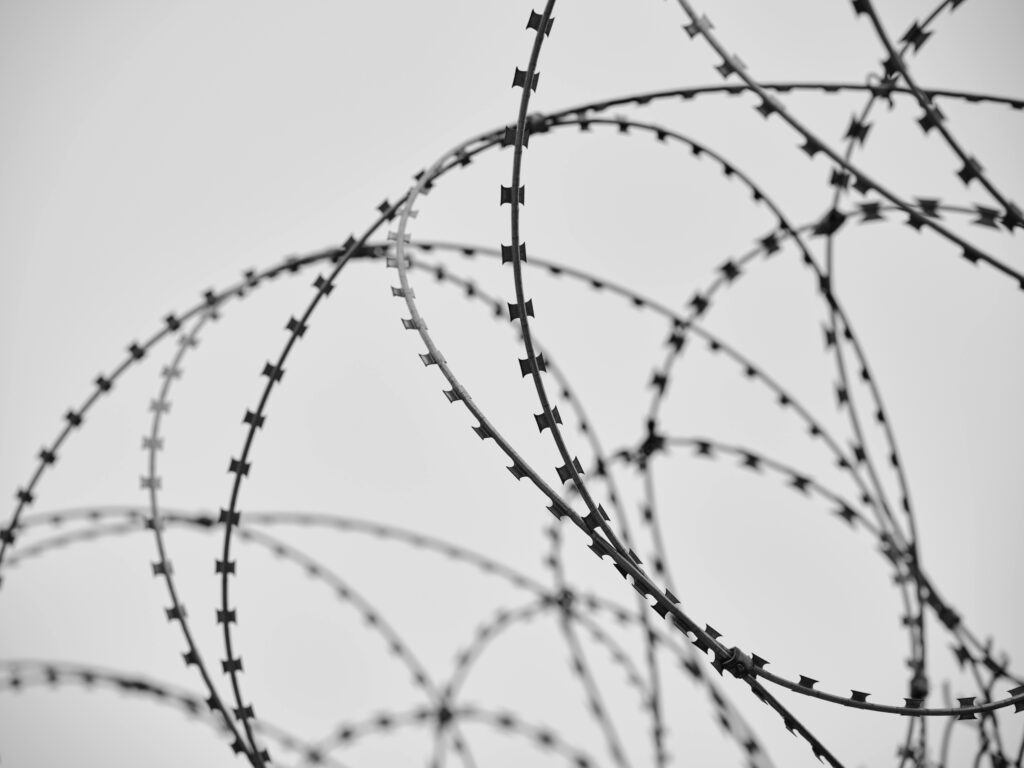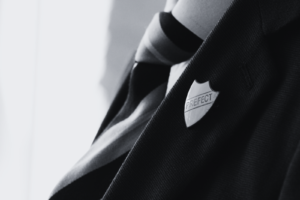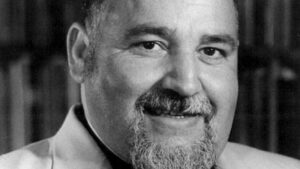Mittagong Training School was no place for children.
From 1906 until the home’s closure in 1976, NSW state wards were sent to Mittagong for many reasons. Some were caught stealing or breaking and entering. Others were neglected, or their parents could no longer afford to care for them. Some were just deemed “uncontrollable” and in need of rehabilitation.
No matter their so-called “crime”, the boys were subjected to long hours of manual labour, prison-like conditions, a lack of education and a disturbing range of abuse.
The housemasters and workers there did not care for the boys. There was no love within those walls.
Previously, we have referenced Mittagong Training School for Boys as one of the nine worst children’s homes in New South Wales. Here, we share the horrific stories of the boys — now men — who were forced into Mittagong in their youth.
Life inside Mittagong Training School For Boys
Before the children’s home became Mittagong Training School for Boys, it was called Mittagong Farm Home for Boys; however, it served the same purpose for several decades. The home was established in 1906 and was proclaimed an industrial school and probationary training home for boys aged eight to seventeen.
Boys classified as “delinquent” were sent to Mittagong from the Children’s Courts after being convicted for “offences” like truanting, wandering, being neglected, breaching probation, stealing, breaking and entering, or being generally “uncontrollable”.
The home was closely linked to the Mittagong Cottage Homes for “delicate and invalid” state wards. Over the years, several more cottages were built to “safeguard the religion of the boys committed”, whereby the boys were separated based on religion and age, not the level of their crimes or illnesses.
In 1908, the President of the State Children’s Relief Board wrote:
“It is not of crime and the criminal that I think when I see these juvenile delinquents, but of buoyant, healthy nature running wild and needing training—seedlings in the garden of humanity which must not be destroyed but, rather, carefully nurtured and judiciously trained for the good that is in them. And so we place them on the soil.”
The boys were put to work on the farm, the dairy, and the orchard, but they also allegedly received training in boot-making, tailoring, and carpentry. In the public eye, Mittagong must have seemed like a wonderful place for boys to be rehabilitated and receive a hands-on education or trade — especially when the President of the State Children’s Relief Board brushed aside allegations of “prison conditions”.
“Barrack like buildings have been superseded by cottages, bright with their own gardens and replete with every comfort suggesting ‘home’,” he told the Sydney Morning Herald.
“The officials approach the home idea altogether, in that a man and wife (“mother” and “father”) are in charge of each cottage. No uniforms are worn by officials or children, no bolts bars, or locks are visible or allowed, and the children are given the greatest amount of liberty compatible with proper order and discipline.”
“They go to the public school from their respective homes to their various avocations at the farm, workshops, etc… Where, then, is the semblance even of prison discipline?”
However, this idealised depiction of Mittagong was far from the truth. In 1934, a major inquiry into the Child Welfare Departments found widespread abuse in government-run institutions.
At the commission, the Superintendent of the Mittagong Farm Home admitted that corporal punishment was in force at the institution and that it had previously gone unrecorded.
He told the commission that “’he had never known a boy to resist corporal punishment which did not exceed six cuts on the buttocks”.
The commission handed down several recommendations including:
- The practice of closely cropping the hair of inmates is to be discontinued
- The practice of placing “second-timers” on a wood heap with a cross-cut saw over a period of months on Saturday afternoons is to be discontinued
- That inexpensive slippers or sandals are provided for the use of inmates.
Up until that point, the boys were barefoot after 5pm, even in the worst kinds of weather. Parents had also not been allowed to visit their boys — from 1939, parents were allowed to visit their children “by arrangement”.
In 1947, Mittagong Farm Home became Mittagong Training School for Boys — and from the testimonies of former inmates, it sounds like the conditions didn’t get much better.
The housemaster referred to the boys as “scum of the earth”
In 2016, the Royal Commission into Institutional Responses to Child Sexual Abuse heard from a former inmate of Mittagong named Gordon George.
Gordon was born in the 1950s in New South Wales but before he turned seven, his parents split up and he and his siblings were made wards of the state. Gordon had many siblings and after his parents’ separation, their mother could no longer afford to look after them.
For years, Gordon’s mother fought to get her children back. Their father also unsuccessfully tried to become their carer, but single fathers were frowned upon in those days. After they were put into a home, their father never visited them.
“Perhaps it was too painful for him to see us in the institutions,” Gordon said.
By age nine, Gordon was separated from his brothers and sent to live at Mittagong for over a year. Gordon told the commissioners that the boys were not educated there — there was no sport and no stimulating activities for them to do. Instead, the boys were put to work.
“We worked all day, or I did… 24/7 and at night there was no reading material. If any comics rolled up they were confiscated,” he said.
Gordon also told the commissioners about their living arrangements. Children were separated into cottages and governed by a housemaster. Gordon’s housemaster was Brian Fryer who was described as cruel and sadistic and called the boys “scum of the earth”.
“You were prevented from talking. Everybody would sit around, no one would talk. You’d fall asleep in the chair, he’d come around, wake you up and you’d all go to bed… a year can go by and only one thing you’d remember because that was the only thing that was different because you did exactly the same thing day by day.”
Fryer also made the boys sexually abuse each other for his own entertainment. On one occasion, Fryer accused Gordon and another boy of rubbing their penises together. He then made the boys stand in a locker room and actually do it to each other.
“Whilst he was making us rub our penises together, I kept crying and crying, and I kept saying, “No”, but he made us do it,” Gordon told the commission.
After the incident, Fryer took the boys’ privileges away for two weeks and made them stand in front of a large class of boys and tell them what they had done. Gordon said he had been publicly and privately humiliated, but he did not report the abuse because he had no one to tell.
Before Gordon went to Mittagong, he got good grades in school and had progressed to higher classes. He was advanced in reading and writing, but when he tried to do an older boy’s homework at Mittagong, he was forced to do kindergarten-level schoolwork.
By the time Gordon left, he had regressed and could no longer read or spell. He had to teach himself how to read and spell when he was in his thirties.
Now, Gordon says the lack of education had the biggest impact on his life rather than the sexual assault itself. He also said he was not going to seek redress because Fryer, if still alive, would now be in his 90s.
“Either move out or die”
Peter and his twin brother were put into state care when they were just two years old, and they bounced around multiple different homes over the years.
Both men were physically and sexually abused in state care and described Mittagong Training School as “hell on earth”. On one occasion, Peter’s nose was broken by one of the offenders at Mittagong.
He ran away from the home many times and ended up living on the streets of Sydney’s Kings Cross at the age of 15.
“I didn’t want to live in Sydney anymore, in Kings Cross, because I was doing things in the Cross [that] young kids shouldn’t be doing, but it was the only way I could survive,” Peter said.
“So I climbed the Harbour Bridge and I decided after sitting up there for three hours to make a choice in life – either move out or die.
“I decided to move to WA and my life just completely did a 100% turnaround.”
In 2014, Peter gave evidence at the Royal Commission into Institutional Responses to Child Sexual Abuse. Before the commission, his two teenage daughters had no idea he had been abused when he was a child.
Since then, Peter has received a payout from the NSW Government and a two-page letter of apology from the NSW Department of Community Services. He said the letter was far more significant to him than the payout.
“It doesn’t matter what dollar value I got at the end of the day, trust me. That means nothing to me. That letter is gold to me. They’ve accepted responsibility,” he said.
“It doesn’t heal anything but it’s part of the way to accept and say, look, they made mistakes, what can we learn from these mistakes and go forward.”
“The biggest thing I want out of the Royal Commission is to listen to children at the end of the day. They are the future. If you don’t listen to children, we’ve not learnt anything.”
Peter has said he hopes that sharing his experience will encourage others to come forward. He said that the commission did not bring him closure but he is thankful for the process and described the experience as “transformative”.
After running away from home, Steven was deemed “uncontrollable” and put into state care
Former Mittagong resident, Steven Grainger, spent most of his childhood in more than a dozen different custodial institutions including Mittagong Training School, Daruk Boys Home and the Institution for Boys in Tamworth — some of the worst offending children’s homes in New South Wales.
When Steven was eight-years-old, he ran away from his home in Villawood after his father was sent to jail. He went up the street to a neighbour’s place and on another occasion, he ended up as far away as Dubbo.
At the age of nine, the police classified Steven as “uncontrollable” and he was taken into custody. At the holding centre, a senior police officer took him to a private room and told him to strip off. The police officer then joined Steven in the shower.
“I remember him commenting on how smooth my skin was. I wanted to run away. But he held me. I was terrified… and then he raped me,” Steven said.
However, the torment was far from over for Steven. The next day, Steven was taken to the courthouse and was asked why he ran away from home. Due to the events of the previous night, Steven was unable to speak. He was in shock.
He was then made a ward of the state.
At Daruk, Tamworth and Mittagong, Steven suffered repeated sexual, physical and emotional abuse. He, like the other boys, was brutally punished for the smallest infringements.
Steven repeatedly tried to escape the homes and report the abuse but no one would listen.
Eventually, when he was 17-years-old, he was sentenced to prison in Parramatta where he was reunited with his father. Due to the abuse, Steven suffered from years of drug addiction and developed bipolar disorder.
‘’I lived in fear every day of my life and can’t forget what happened to me,’’ he told the media.
‘’I remember every rape, every face, every ounce of pain and every humiliating episode. I’ve spent more than 80 per cent of my life in custody.”
“I don’t trust anyone and I can’t help but blame the government who made me a ward of the state… and didn’t protect me from the animals who abused me.”
In 2016, Steven received an apology from the NSW Government for the “heinous and frequent” abuse he suffered in their detention centres. In the letter, Deputy Secretary of the Department of Family and Community Services, Deidre Mulkerin, described the abuse as “reprehensible”.
“The people who abused you, and the people who did not act to protect you from the abuse, breached your trust in them,” Ms Mulkerin said.
“I am also greatly saddened to hear about the suffering you endured in these institutions and the consequences of the abuse for your adult life. I deeply regret that as a child and a young person you did not experience the care and protection to which you were unquestionably entitled.”
We couldn’t have said it better ourselves. Children in state care — even detention — should not be subjected to physical, emotional or sexual abuse. Instead, these children need to be protected, nurtured and rehabilitated.
At Kelso Lawyers, we stand with those who have been let down by the institution that was supposed to help them. If you believe you have been abused in state care, contact the compassionate team from Kelso Lawyers — we’re here to help.
Get the justice you deserve with Kelso Lawyers. We want to hear your story. Call (02) 4907 4200 or complete the online form before you accept payment from the National Redress Scheme.
Feature Image: Pexels




